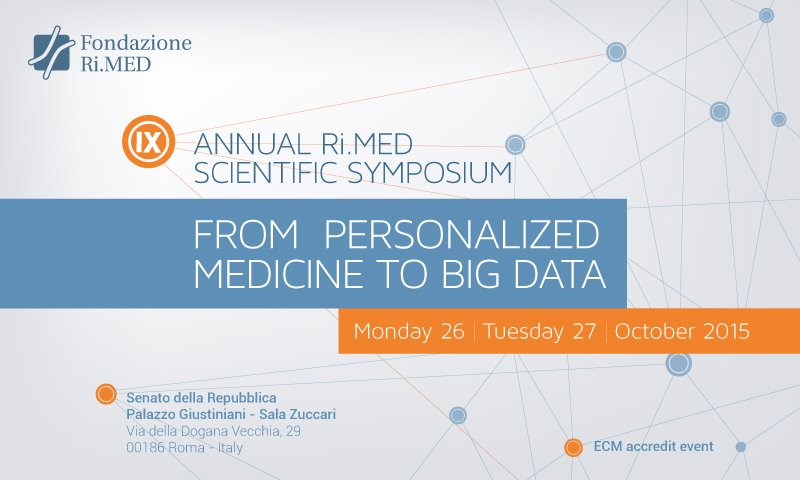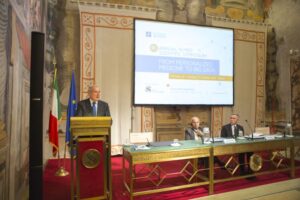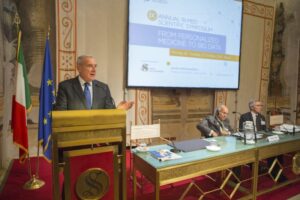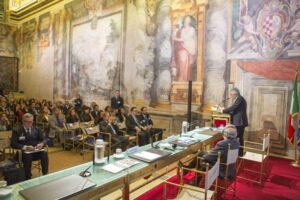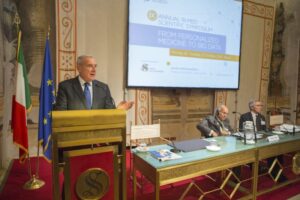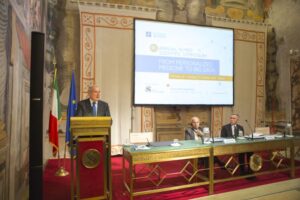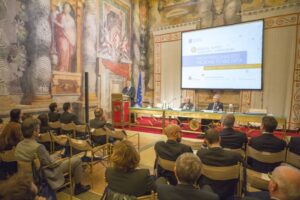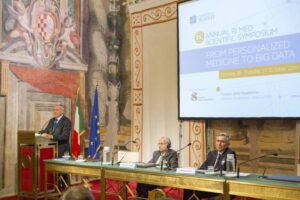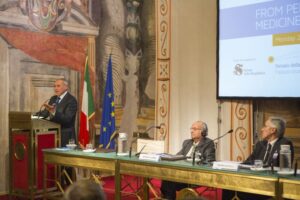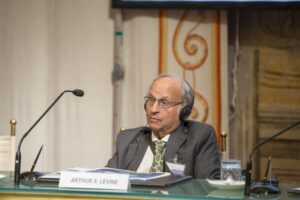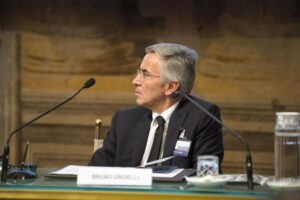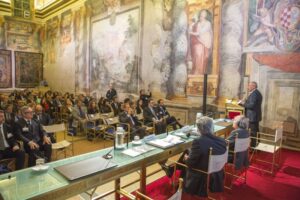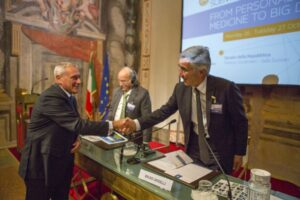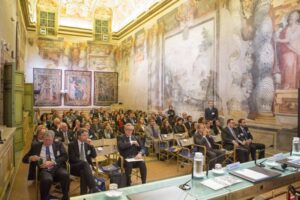Researchers have access to a remarkable quantity of information: electronic clinical archives, digital image databases, molecular analyses, and many more. Today the possibilities offered by the most advanced electronic systems to catalog, cross-check, process, and interpret the massive amount of available medical and scientific data open revolutionary prospects for both research and clinical application. The challenge is to identify strategies that will allow physicians and scientists to assimilate this information and rapidly identify significant relations for purposes related to their research, or transform data in applicable knowledge.
This was the topic of the ninth edition of the Ri.MED Foundation Scientific Symposium entitled FROM PERSONALIZED MEDICINE TO BIG DATA that took place on October 26-27, 2015 in Rome in the distinguished location of Sala Zuccari in Palazzo Giustiniani, site of the Senate of the Italian Republic that has granted its High Patronage for this event.
The President of the Senate Pietro Grasso opened the 9th edition of the Ri.MED Foundation Scientific Symposium that this year took place in Rome in the splendid scenario of Palazzo Giustiniani, with the High Patronage of the Senate of the Italian Republic.
Mr. Grasso welcomed the participants with an openhearted speech on the young Italian excellences, referring in particular to the Ri.MED researchers as “the most virtuous example of the hope to win the challenge with the future”, and inviting them to nurture the desire and pride of putting their talents at the service of the Nation. Referring to the Foundation’s soon-to-be Research Center, Mr. Grasso said he is proud that his region of origin will host this ambitious project and that, if the institutions will fulfill their tasks, it will soon be possible to make sure investments and human resources return to Sicily.
The Vice President of Ri.MED, Bruno Gridelli, shared a message from the President of the Italian Republic Sergio Mattarella, in which the Nation’s highest office stressed the importance of scientific research in biomedicine and biotechnologies for Italy’s development and to improve the citizens’ health conditions. “The transfer of the outcomes of scientific innovation from research to clinical practice is something that must be supported and encouraged. It is with this process that the goals of science become opportunities to improve the well-being of people”. President Mattarella also said he particularly endorses the choice of the main topic of the conference: “The notion of personalized medicine and the management of related data flows is key to enhancing clinical services also in the context of public health management“. Finally, Mr. Mattarella did not forget to mention the young scientists who represent a resource that must be valued.
The floor was thus left to the young Ri.MED researchers. Following the presentation of the Ri.MED Fellowship Program by Scientific Director Arthur Levine, some of the most brilliant researchers of the Foundation alternated on the podium to illustrate their own research projects.
The second day, Tuesday, October 27, was focus on the confluence of “big data and personalized medicine”. The first presentation was feature Prof. Jeremy Berg, Director, UPMC Institute for Personalized Medicine, Professor of Computational and Systems Biology at the University of Pittsburgh School of Medicine, and member of Ri.MED’s Board of Directors: “Personalized medicine uses information about an individual patient’s genome with other clinical data to drive new diagnostic and treatment approaches. It has poised to be the next revolution in medicine although much work remains to be done”.
This presentation was followed by talks by some of the major international experts on the subject invited by Ri.MED Foundation to contribute to the sharing and dissemination of important scientific outcomes: from prevention and precision oncology medicine, to personalized approaches to decode the genetic complexity of neurological disorders.
Each edition of the Ri.MED Symposium allows participants an opportunity to preview presentations focusing on important and often unpublished scientific results, contributing to the dissemination of scientific knowledge.
Download the program
to download the presentation slides of the speakers, please click on the following links:
26 ottobre 2015
Bruno Gridelli – Building the future
Arthur S. Levine – Italy in Pittsburgh: Ri.MED FELLOWS TRAINING PROGRAM
Paola Corti – Nitrite bioactivation by Globin X in zebrafish blood and effects on heart regeneration
Antonio D’Amore – Biodegradable elastomeric stentless engineered valve
Ester Badami – NK cells in tumor and infection
Salvatore Pasta – Hemodynamic and Biomarkers for Clinical Risk Stratification of Ascending Thoracic Aortic Aneurysm with Bicuspid Aortic Valve
Riccardo Gottardi – Osteochondral Microphysiological Systems for Pharmacological Screening
Chiara Cianciolo Cosentino – Role of CAMTA1 in cerebellar ataxia: a zebrafish study
Marta Garcia Contreras – Exosomes for the Diagnosis and Therapy of Type 1 Diabetes Mellitus
27 ottobre 2015
Camillo Ricordi
Jeremy Berg – The Foundations of Personalized Medicine
Adrian V. Lee – Genomic Technologies and the New Era of Precision Cancer Medicine
Paolo Comoglio – The MET Paradigm: Oncogene “Addiction,” “Expedience,”and “Inherence”
Aleksandar Rajkovic – Genomic Approaches to Reproductive Disorders
Enza Maria Valente – “Personalized” Approaches To Decode the Genetic Complexity of Neurological Disorders
Dietrich Stephan – Extending the Healthy Lifespan through Precision Prevention
Philip E. Empey – Pharmcogenomics
Gregory Cooper – Big Data to Knowledge
Archivio fotografico – Senato della Repubblica © 2015

